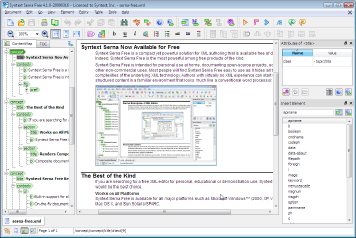Last update : June 16, 2012;
M3U is a file format to store multimedia playlists. It was first used by Winamp. PLS does the same, but is a more expressive format than basic M3U, as it can store information on the song title and length (this is supported in extended M3U only). With PLS version 2, playlists also include a PLS version declaration.
iTunes, QuickTime Player, Real player, Winamp, XBMC, XMPlay, VLC media player and many other programs play PLS files without any extra codecs.
Xiph.Org Foundation, a non-profit organization that produces free multimedia formats and software tools, created in 2004 the XML Shareable Playlist Format (XSPF, called spiff) for sharing the kind of playlist that can be played on every personal computer or portable device. The home of XSPF is the website xspf.org.
XSPF is supported by the DLNA server Seviio. The playlists handle not only audio, but also video or other multimedia files.

